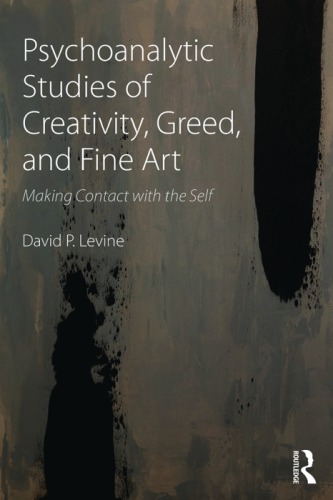

Most ebook files are in PDF format, so you can easily read them using various software such as Foxit Reader or directly on the Google Chrome browser.
Some ebook files are released by publishers in other formats such as .awz, .mobi, .epub, .fb2, etc. You may need to install specific software to read these formats on mobile/PC, such as Calibre.
Please read the tutorial at this link: https://ebookbell.com/faq
We offer FREE conversion to the popular formats you request; however, this may take some time. Therefore, right after payment, please email us, and we will try to provide the service as quickly as possible.
For some exceptional file formats or broken links (if any), please refrain from opening any disputes. Instead, email us first, and we will try to assist within a maximum of 6 hours.
EbookBell Team

5.0
20 reviewsThroughout the history of psychoanalysis, the study of creativity and fine art has been a special concern. Psychoanalytic Studies of Creativity, Greed and Fine Art: Making Contact with the Self makes a distinct contribution to the psychoanalytic study of art by focusing attention on the relationship between creativity and greed. This book also focuses attention on factors in the personality that block creativity, and examines the matter of the self and its ability to be present and exist as the essential element in creativity.
Using examples primarily from visual art David Levine explores the subjects of creativity, empathy, interpretation and thinking through a series of case studies of artists, including Robert Irwin, Ad Reinhardt, Susan Burnstine, and Mark Rothko. Psychoanalytic Studies of Creativity, Greed and Fine Art explores the highly ambivalent attitude of artists toward making their presence known, an ambivalence that is evident in their hostility toward interpretation as a way of knowing. This is discussed with special reference to Susan Sontag’s essay on the subject of interpretation.
Psychoanalytic Studies of Creativity, Greed and Fine Art contributes to a long tradition of psychoanalytically influenced writing on creativity including the work of Deri, Kohut, Meltzer, Miller and Winnicott among others. It will be of interest to psychoanalysts, psychoanalytic psychotherapists, historians and theorists of art.